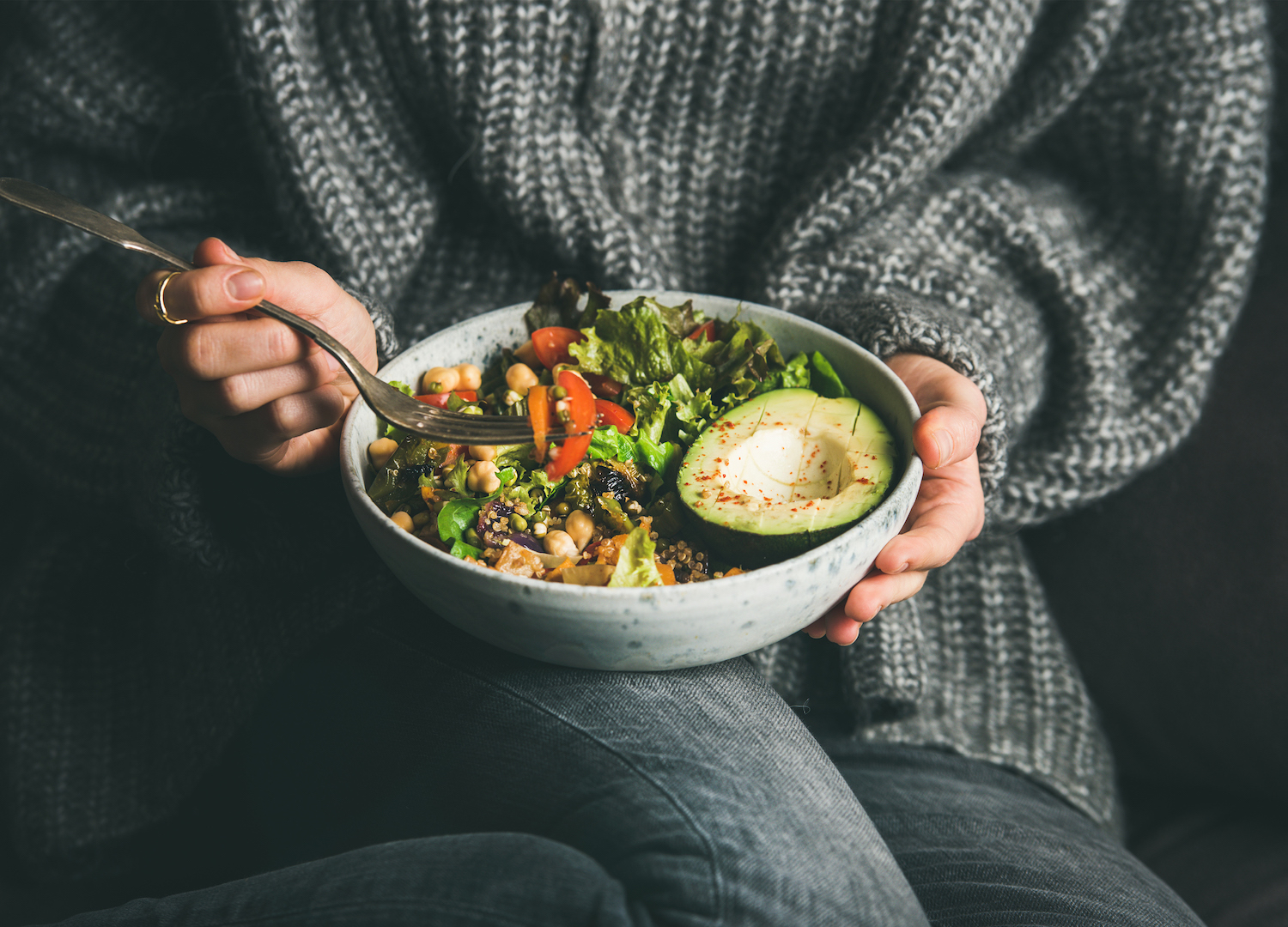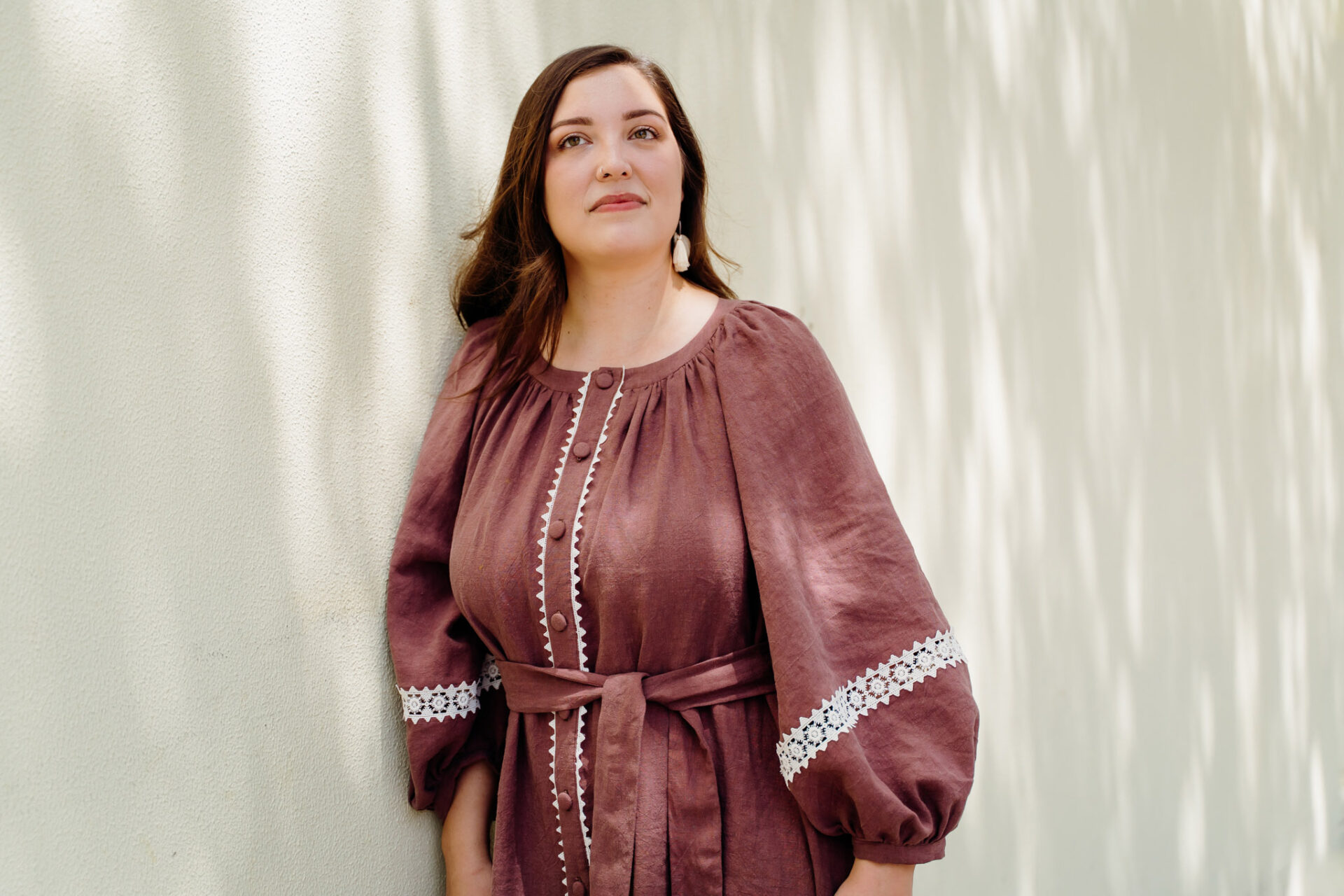So You Want to… Start Living More Sustainably

- Words by Peppermint
According to a recent, self-conducted survey, Endeavour College found almost half (46%) of participants cared more about their health now than before the pandemic. Almost two-thirds (61%) wanted to learn more about health to better care for themselves and their loved ones. It led to the college launching its first suite of short courses – designed to be “relevant and life-applicable” while also empowering students to “take control of [their] own learning”.
In this series, created in partnership with our good friends at Endeavour Short Courses, we’re taking a deep dive into the curriculum – to learn more about what the courses entail and expand our knowledge from credible sources. Across the Natural Health suite, students can learn about natural remedies from around the world, explore homeopathy and sort the facts from fiction when it comes to green living. We caught up with Endeavour College’s Marianne Zander of This Wellness Life to learn how to live more sustainably.

above MARIANNE ZANDER
“Sustainability” has become a bit of a buzzword in recent years as we see greenwashing running rife. What does sustainable living mean to you?
For me, sustainable living means adopting practices and lifestyles that prioritise the wellbeing of communities, the environment and sentient beings in a balanced and harmonious way. It’s recognising that our wellbeing is deeply intertwined with the health of the planet, and leading a mindful lifestyle that supports personal health and environmental preservation to foster a sense of interconnectedness.
It’s recognising that our wellbeing is deeply intertwined with the health of the planet, and leading a mindful lifestyle that supports personal health and environmental preservation to foster a sense of interconnectedness.
READ MORE: So You Want to… Start Your Own Natural Health Business
Why do you think there’s still a misconception that living sustainably is a daunting task?
I think this can be attributed to several factors including:
Lack of awareness
People may have limited knowledge about sustainable living practices and their potential benefits, which can make living this way seem unfamiliar and overwhelming.
Perception of inconvenience
Some individuals may perceive living sustainably as inconvenient or time-consuming. As a result, they may believe that adopting eco-friendly habits requires significant effort or compromises in their daily routines.
Misinformation and greenwashing
Unfortunately, there’s still a significant amount of misinformation surrounding sustainable living, which makes it challenging for people to discern between genuine environmentally friendly practices and marketing tactics. This confusion may discourage individuals from taking sustainable actions.
Financial considerations
While some sustainable products or technologies may initially come with a higher price tag, the long-term cost savings and environmental benefits can be overlooked. This perception of financial burden can deter people from embracing sustainable practices.
Limited accessibility
If sustainable alternatives aren’t readily available or affordable, it can create a barrier to adopting environmentally friendly practices.
Resistance to change
Human beings are creatures of habit, and adopting new behaviours or breaking old habits can be challenging. Sustainable living often requires a shift in mindset and lifestyle choices, which can be perceived as difficult.

What would be your top tips for living a more sustainable and low-waste life for those just getting started?
Some of the simplest changes we can make begin in the kitchen. For instance:
Aim for less food waste
Rather than throwing food out, get creative! For instance, if your fruit and veggies are getting old, freeze, pickle or stew them. Make a delicious banana and zucchini bread with overripe bananas. Freeze basil leaves, raw nuts and cooked couscous and rice to preserve their life. Store fresh herbs like coriander and parsley upright in a glass of water in the fridge to retain freshness. Instead of throwing out broccoli stalks, try grating and adding to soups or stir-fry dishes.
Reduce meat
We know red meat has the highest climate impact of all foods, so reducing our meat intake can make a real difference. It doesn’t have to be a strict meat-free diet, but try introducing a few healthy, tasty, easy and filling meat-free dishes into your repertoire such as veggie frittatas, cauliflower and cheese bakes or stir-fry tempeh and veggies. If you do eat meat, watch your portion size. A serving of meat shouldn’t be any larger than the palm of your hand.
READ MORE: So You Want to Learn More About… Nutrition
Other simple steps we can take include:
Connect with nature
Spending time outdoors and cultivating a connection with nature not only offers therapeutic benefits, it also helps foster a sense of appreciation for the environment and encourages sustainable behaviour. This could be as simple as going for a walk or a hike, spending time in the ocean, meditating in your favourite park or getting your hands dirty in your own garden.
Use natural remedies
Natural health focuses on utilising plant-based remedies, herbal preparations and traditional healing practices to support health and wellbeing. For instance, get creative with your own DIY products to help soothe skin, relieve sore, achy muscles, or aid in restful sleep. You’d be surprised what you can create using natural ingredients – many of which you may already have in your kitchen.
It’s important to remember that sustainability is a journey, and it’s okay to start small. Every small change counts and can have a positive impact on the environment.

How can we lower our eco-footprint through food choices?
The food we choose to eat contributes more to our eco-footprint than our transport and home energy use combined, with meat, eggs and dairy products being the biggest contributors. The good news is that we can make a conscious choice about what we put on our plates. Here are just a few things we can do to make a difference:
Consider a plant-based diet
Eating fewer animal products is one of the most effective ways that we can reduce our footprint, as plant-based foods generally require few resources to produce, emit fewer greenhouse gases and have less impact on land and water resources.
Support local and seasonal produce
Buy locally grown, seasonal fruits and vegetables. This not only reduces the carbon footprint associated with transportation, but it also supports local farmers and helps maximise nutrition content.
Choose organic
Pesticides and fertilisers have a large carbon footprint, not to mention the impact on our health, so buy organic when you can. Start with foods that you eat the skin of such as apples, berries, cucumbers, stone fruit, strawberries, tomatoes and leafy greens like spinach and kale to reduce pesticide consumption.
Buy imperfect produce
Choosing imperfect or odd-shaped produce saves food that would otherwise go to landfills, creating greenhouse gases as it decomposes. Plus, these imperfect foods usually come at a discount!
Buy less junk food
Ready-made foods and drinks might not create as much carbon as meat production, but because of the quantity we consume and all that packaging and processing, the climate impact adds up.
Buy in bulk
Bulk buying helps to reduce packaging waste and costs. Bring your own reusable containers to stores that offer a bulk section.

Too often, women especially, are given an either-or choice. How does holistic thinking inform your approach to sustainable living?
Adopting a sustainable lifestyle requires a bit of a mindset shift. We don’t have to take an “all or nothing” approach and it’s important to remember that every little bit counts. I would encourage people to start viewing sustainability as a holistic approach rather than a series of individual actions.
We don’t have to take an “all or nothing” approach and it’s important to remember that every little bit counts.
It’s also about making conscious choices across all aspects of life, including not only things like consumption, waste reduction and energy use but also practising proactive self-care and taking preventive measures to address health imbalances before they become burdensome, chronic conditions.

What’s your best advice for ensuring lifestyle changes remain sustainable over the long term?
Begin by making small achievable changes rather than getting overwhelmed by drastic transformations. Set realistic goals, define your sustainability goals and create a plan to achieve them. Celebrate your achievements, no matter how small, and use any setbacks as learning opportunities to refine your approach. Most importantly, find your motivation. Discover what motivates you personally to live sustainably. Whether it’s protecting the environment, preserving natural resources or creating a better future for generations to come, aligning your actions with your values can provide a strong foundation for long-term sustainability.
READ MORE: So You Want to Learn More About… Mindfulness
This article was created in partnership with our friends at Endeavour College of Natural Health who offer a range of online short courses. Upskill in nutrition, mental health and wellness, business and natural health or get a taste of a natural health degree before embarking on one. For more information visit endeavourshortcourses.edu.au.
JOIN OUR MAILING LIST
Brighten up your inbox with our not-too-frequent emails featuring Peppermint-related news, events, competitions and more!
explore
More articles
Look, I don’t want to make anyone panic but IT’S DECEMBER!!! If you’re planning to give homemade gifts, you’re going to have to act fast. …
Hang out with us on Instagram
🌻 The Paddington 🌻
This is a much-loved staple, created for Issue 50 in 2021. We love seeing the #PeppermintPaddingtonTop continually popping up in our feeds!
How stunning is our model Elon MelaninGoddessEfon – she told us it was one of the first times she had been asked to come to a shoot with her natural hair. 🌻
We worked with South African patternmaker Sarah Steenkamp of @FrenchNavyNow_ to create this wardrobe essential – the perfect puff-sleeve blouse. Raglan sleeves make it the ultimate beginner sew, plus the gorgeous back buttons let you add your own personal twist.
Pattern via the link in bio! 🪡
Photos: @KelleySheenan
Fabric: @Spoonflower
Model: MelaninGoddessEfon

“In the 1940’s, Norwegians made and wore red pointed hats with a tassel as a form of visual protest against Nazi occupation of their country. Within two years, the Nazis made these protest hats illegal and punishable by law to wear, make, or distribute. As purveyors of traditional craft, we felt it appropriate to revisit this design.”
Crafters have often been at the heart of many protest movements, often serving as a powerful means of political expression. @NeedleAndSkein, a yarn store in Minnesota, are helping to mobilise the craftivists of the world with a ‘Melt The Ice’ knitting pattern created by @Yarn_Cult (with a crochet pattern too), as a way of peaceful protest.
The proceeds from the $5 pattern will go to local immigrant aid organisations – or you can donate without buying the pattern.
Raise those needles, folks – art and craft can change the world. 🧶
Link in bio for the pattern.
Images: @Gather_Fiber @NeedleAndSkein @a2ina2 @KyraGiggles Sandi.204 @WhatTracyMakes AllieKnitsAway Auntabwi2
#MeltTheIce #Craftivism #Knitting #CraftForChange

TWO WEEKS TO GO! 🤩
"The most important shift is moving from volume-led buying to value-led curation – choosing fewer, better products with strong ethics, considered production and meaningful stories. Retailers have real influence here: what you buy signals what you stand for. At Life Instyle, this means using the event to discover and invest in small-scale, planet-considerate brands that align with your values and your customer’s conscience. Consumers don’t need more things; they need better things, and retailers play a key role in selecting, contextualising, and championing why those products matter."
Only two more weeks until @Life_Instyle – Australia`s leading boutique retail trade show. If you own a store, don`t miss this event! Connect with designers, source exquisite – and mindful – products, and see firsthand why this is Australia’s go-to trade show for creatives and retailers alike. And it`s free! ✨️
Life Instyle – Sydney/Eora Country
14-17 February 2026
ICC, Darling Harbour
Photos: @Samsette
#LifeInstyle #SustainableShopping #SustainableShop #RetailTradeEvent

Calling all sewists! 📞
Have you made the Peppermint Waratah Wrap Dress yet? Call *1800 I NEED THIS NOW to get making!
This gorgeous green number was modelled (and made) by the fabulous Lisa of @Tricky.Pockets 🙌🏼
If you need a nudge, @ePrintOnline are offering Peppermint sewists a huge 🌟 30% off ALL A0 printing 🌟 when you purchase the Special Release Waratah Wrap Dress pattern – how generous is that?!
Head to the link in bio now 📞
*Not a real number in case that wasn`t clear 😂
#PeppermintWaratahWrapDress #PeppermintPatterns #SewingPattern #WrapDress #WrapDressPattern

8 Things to Know About January 26 - from @ClothingTheGaps:
Before you celebrate, take the time to learn the truth. January 26 is not a day of unity it’s a Day of Mourning and Survival for Aboriginal and Torres Strait Islander peoples.
It marks the beginning of invasion, dispossession, and ongoing colonial violence. It’s time for truth-telling, not whitewashed history.
Stand in solidarity. Learn. Reflect. Act.
✊🏽 Blog written by Yorta Yorta woman Taneshia Atkinson.
🔗 Link in bio of @ClothingTheGaps to read the full blog
#ChangeTheDate #InvasionDay #SurvivalDay #AlwaysWasAlwaysWillBe #ClothingTheGaps

As the world careens towards AI seeping into our feeds, finds and even friend-zones, it`s becoming increasingly hard to ignore.
We just wanted to say that here at Peppermint, we are choosing to not print or publish AI-generated art, photos, words, videos or content.
Merriam-Webster’s human editors chose `slop` as the 2025 Word of the Year – they define it as “digital content of low quality that is produced usually in quantity by means of artificial intelligence.” The problem is, as AI increases in quality, it`s becoming more and more difficult to ascertain what`s real and what`s not.
Let`s be clear here, AI absolutely has its place in science, in climate modelling, in medical breakthroughs, in many places... but not in replacing the work of artists, writers and creatives.
Can we guarantee that everything we publish is AI-free? Honestly, not really. We know we are not using it to create content, but we are also relying on the artists, makers and contributors we work with, as well as our advertisers, to supply imagery, artwork or words created by humans. AI features are also creeping into programs and apps too, making it difficult to navigate. But we will do our best to avoid it and make a stand for the artists and creatives who have had their work stolen and used to train AI machines, and those who are now losing work as they are replaced by this energy-sapping, environment-destroying magic wand.
Could using it help our productivity and bottom line? Sure. And as a small business in a difficult landscape, that`s a hard one to turn down. We know other publishers who use AI to write stories, create recipes, produce photo shoots... but this one is important to us.
`Touch grass` was also a Merriam-Webster Word of the Year. We`ll happily stick with that as a theme, thanks very much. 🌿

















